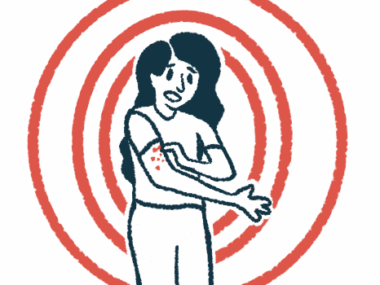Steroid mouthwash causes Cushing’s in elderly woman: Report
Scientists aim to raise awareness of potential impact of 'magic mouthwash'
Written by |

An elderly woman developed Cushing’s syndrome after a year of using a so-called magic mouthwash — a rinse containing a potent topical corticosteroid — to treat an inflammatory disease affecting the mouth, according to a case study from Australia.
About two months after stopping use of the steroid mouthwash, and receiving daily hydrocortisone — a treatment commonly used as a hormone replacement therapy for people without enough cortisol — the woman’s cortisol and adrenocorticotropic hormone levels returned to normal, the researchers noted.
With this report, the team aimed to inform clinicians about the possible impact of “’magic mouthwash,’ a compounded mouthwash prescribed by [an] oral medicine specialist” among patients, noting that the “systemic absorption of corticosteroids from mouthwashes is a risk, especially if … oral lesions are present.”
The team wrote that “long-term use of [corticosteroids] can lead to [medication-induced] Cushing syndrome and secondary adrenal insufficiency and have been observed with topical preparations including gels and mouthwashes.”
The case study, “Beware of the rinse: magic mouthwash as a rare cause of iatrogenic Cushing syndrome and secondary adrenal insufficiency,” was published in the Medical Journal Australia.
Woman prescribed ‘magic mouthwash’ to treat mouth disease
Cushing’s syndrome refers to a group of disorders characterized by excessive levels of cortisol, a steroid hormone that regulates several bodily processes, including metabolism and immune responses. As a result of elevated cortisol, Cushing’s patients experience a range of symptoms, including weight gain, skin changes, muscle weakness, and extreme fatigue.
Exposure to high doses of corticosteroid medicines can lead to the development of iatrogenic, or medication-induced, Cushing’s syndrome. Corticosteroids are a group of medications that reduce inflammation by mimicking the activity of cortisol. This is the most common form of Cushing’s syndrome.
Here, the researchers detailed the case of a 76-year-old woman treated at Royal Prince Albert Hospital in Sydney who was found to have unusually low cortisol levels. She also experienced fatigue, limb bruising, hair thinning, and increased irritability.
The woman had been diagnosed two years ago with an inflammatory mouth disease, known as oral lichen planus, which caused her to have mouth dryness and discomfort.
To treat her mouth disease, the woman was prescribed a compounded rinsing liquid, known as magic mouthwash, by an oral medicine specialist. She had used it continuously for the last year, as instructed, and had not swallowed it by accident.
However, the magic mouthwash contained a potent topical corticosteroid known as clobetasol propionate.
The researchers noted that magic mouthwash has gained popularity for treating conditions like oral lichen planus. However, there are “no fixed formulations” and no standardized guidelines for how long a patient can safely use it.
Researchers say use of steroid mouthwash is becoming more common
When the woman was examined at the endocrine clinic, she showed signs of Cushing’s syndrome, including a swollen face, thin skin, bruising, and muscle weakness.
In her mouth, doctors found signs of oral lichen planus, including red and inflamed areas overlaid with white lacy lines on her tongue and the insides of her lips and cheeks.
Laboratory tests showed she had abnormally low levels of cortisol and adrenocorticotropic hormone (ACTH), a hormone that stimulates cortisol production by the adrenal glands.
She began taking hydrocortisone, a steroid medication that can be used as a replacement for natural cortisol, and switched from the magic mouthwash to one that did not contain corticosteroids.
“In affected cases, oral hydrocortisone therapy is recommended after stopping steroid mouthwash to prevent life-threatening adrenal crisis,” the researchers wrote.
This case underscores the need for vigilance in [recognizing] the potential systemic absorption and adrenal suppressive effects of topical corticosteroids, even when used as part of dental treatments.
When she returned to the doctors two months after stopping the mouthwash, her cortisol and ACTH levels were normal and her oral lichen planus was under control. She was able to stop taking hydrocortisone at this time.
According to the researchers, “this case underscores the need for vigilance in [recognizing] the potential systemic absorption and adrenal suppressive effects of topical corticosteroids, even when used as part of dental treatments.”
The team noted that “magic mouthwash … has gained popularity” in recent years for treating mouth problems that arise from autoimmune diseases and cancer therapies.
“We hope this case will raise awareness of the potential impact of magic mouthwash,” the researchers wrote. “[Hypothalamic-pituitary-adrenal] axis testing and an endocrine review are strongly advised for patients who exhibit cushingoid features while using steroid mouthwash, or who experience symptoms suggestive of adrenal insufficiency after discontinuation.”







